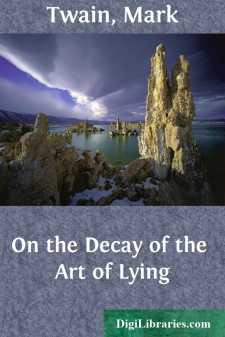Categories
- Antiques & Collectibles 13
- Architecture 36
- Art 48
- Bibles 22
- Biography & Autobiography 815
- Body, Mind & Spirit 144
- Business & Economics 28
- Children's Books 18
- Children's Fiction 14
- Computers 4
- Cooking 94
- Crafts & Hobbies 4
- Drama 346
- Education 58
- Family & Relationships 59
- Fiction 11835
- Games 19
- Gardening 17
- Health & Fitness 34
- History 1378
- House & Home 1
- Humor 147
- Juvenile Fiction 1873
- Juvenile Nonfiction 202
- Language Arts & Disciplines 89
- Law 16
- Literary Collections 686
- Literary Criticism 179
- Mathematics 13
- Medical 41
- Music 40
- Nature 180
- Non-Classifiable 1768
- Performing Arts 7
- Periodicals 1453
- Philosophy 65
- Photography 2
- Poetry 896
- Political Science 203
- Psychology 44
- Reference 154
- Religion 515
- Science 126
- Self-Help 85
- Social Science 83
- Sports & Recreation 34
- Study Aids 3
- Technology & Engineering 59
- Transportation 23
- Travel 463
- True Crime 29
Our website is made possible by displaying online advertisements to our visitors.
Please consider supporting us by disabling your ad blocker.
The Innocents Abroad - Volume 04
by: Mark Twain
Description:
Excerpt
CHAPTER XXXI.
THE BURIED CITY OF POMPEII
They pronounce it Pom-pay-e. I always had an idea that you went down into Pompeii with torches, by the way of damp, dark stairways, just as you do in silver mines, and traversed gloomy tunnels with lava overhead and something on either hand like dilapidated prisons gouged out of the solid earth, that faintly resembled houses. But you do nothing the kind. Fully one-half of the buried city, perhaps, is completely exhumed and thrown open freely to the light of day; and there stand the long rows of solidly-built brick houses (roofless) just as they stood eighteen hundred years ago, hot with the flaming sun; and there lie their floors, clean-swept, and not a bright fragment tarnished or waiting of the labored mosaics that pictured them with the beasts, and birds, and flowers which we copy in perishable carpets to-day; and here are the Venuses, and Bacchuses, and Adonises, making love and getting drunk in many-hued frescoes on the walls of saloon and bed-chamber; and there are the narrow streets and narrower sidewalks, paved with flags of good hard lava, the one deeply rutted with the chariot-wheels, and the other with the passing feet of the Pompeiians of by-gone centuries; and there are the bake-shops, the temples, the halls of justice, the baths, the theatres—all clean-scraped and neat, and suggesting nothing of the nature of a silver mine away down in the bowels of the earth. The broken pillars lying about, the doorless doorways and the crumbled tops of the wilderness of walls, were wonderfully suggestive of the "burnt district" in one of our cities, and if there had been any charred timbers, shattered windows, heaps of debris, and general blackness and smokiness about the place, the resemblance would have been perfect. But no—the sun shines as brightly down on old Pompeii to-day as it did when Christ was born in Bethlehem, and its streets are cleaner a hundred times than ever Pompeiian saw them in her prime. I know whereof I speak—for in the great, chief thoroughfares (Merchant street and the Street of Fortune) have I not seen with my own eyes how for two hundred years at least the pavements were not repaired!—how ruts five and even ten inches deep were worn into the thick flagstones by the chariot-wheels of generations of swindled tax-payers? And do I not know by these signs that Street Commissioners of Pompeii never attended to their business, and that if they never mended the pavements they never cleaned them? And, besides, is it not the inborn nature of Street Commissioners to avoid their duty whenever they get a chance? I wish I knew the name of the last one that held office in Pompeii so that I could give him a blast. I speak with feeling on this subject, because I caught my foot in one of those ruts, and the sadness that came over me when I saw the first poor skeleton, with ashes and lava sticking to it, was tempered by the reflection that may be that party was the Street Commissioner.
No—Pompeii is no longer a buried city. It is a city of hundreds and hundreds of roofless houses, and a tangled maze of streets where one could easily get lost, without a guide, and have to sleep in some ghostly palace that had known no living tenant since that awful November night of eighteen centuries ago.
We passed through the gate which faces the Mediterranean, (called the "Marine Gate,") and by the rusty, broken image of Minerva, still keeping tireless watch and ward over the possessions it was powerless to save, and went up a long street and stood in the broad court of the Forum of Justice. The floor was level and clean, and up and down either side was a noble colonnade of broken pillars, with their beautiful Ionic and Corinthian columns scattered about them. At the upper end were the vacant seats of the Judges, and behind them we descended into a dungeon where the ashes and cinders had found two prisoners chained on that memorable November night, and tortured them to death. How they must have tugged at the pitiless fetters as the fierce fires surged around them!
Then we lounged through many and many a sumptuous private mansion which we could not have entered without a formal invitation in incomprehensible Latin, in the olden time, when the owners lived there—and we probably wouldn't have got it. These people built their houses a good deal alike. The floors were laid in fanciful figures wrought in mosaics of many-colored marbles. At the threshold your eyes fall upon a Latin sentence of welcome, sometimes, or a picture of a dog, with the legend "Beware of the Dog," and sometimes a picture of a bear or a faun with no inscription at all. Then you enter a sort of vestibule, where they used to keep the hat-rack, I suppose; next a room with a large marble basin in the midst and the pipes of a fountain; on either side are bedrooms; beyond the fountain is a reception-room, then a little garden, dining-room, and so forth and so on. The floors were all mosaic, the walls were stuccoed, or frescoed, or ornamented with bas-reliefs, and here and there were statues, large and small, and little fish-pools, and cascades of sparkling water that sprang from secret places in the colonnade of handsome pillars that surrounded the court, and kept the flower-beds fresh and the air cool. Those Pompeiians were very luxurious in their tastes and habits. The most exquisite bronzes we have seen in Europe, came from the exhumed cities of Herculaneum and Pompeii, and also the finest cameos and the most delicate engravings on precious stones; their pictures, eighteen or nineteen centuries old, are often much more pleasing than the celebrated rubbish of the old masters of three centuries ago. They were well up in art. From the creation of these works of the first, clear up to the eleventh century, art seems hardly to have existed at all—at least no remnants of it are left—and it was curious to see how far (in some things, at any rate,) these old time pagans excelled the remote generations of masters that came after them....












